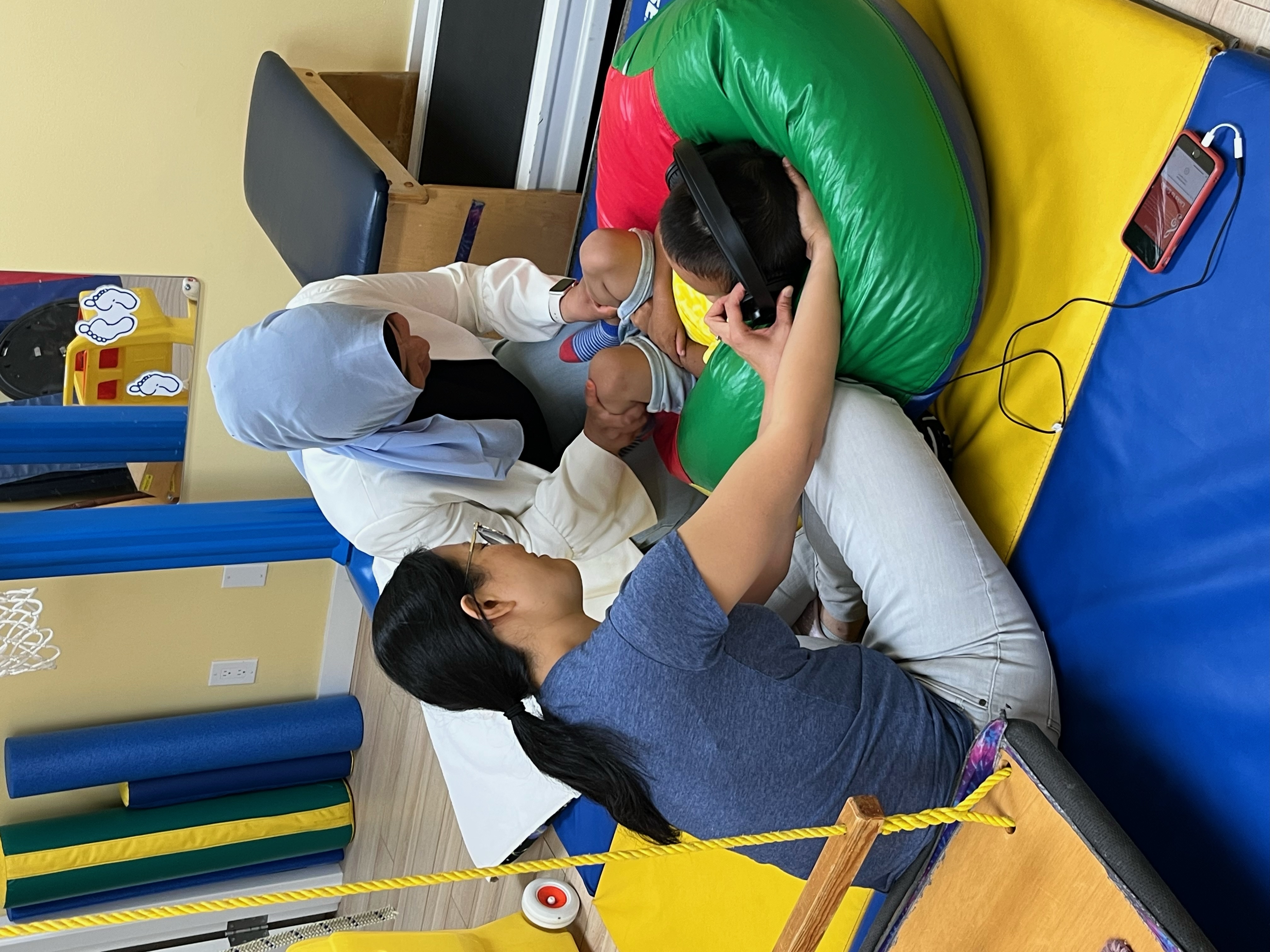Occupational Therapy

Occupational Therapy
Occupational therapy is a form of intervention in which the therapist and child work to develop or improve the necessary skills for daily living through activity. Principal “occupations” of childhood include play, school performance and self-care.
Mastering play with toys improves fine motor function and helps teach basic concepts such as colours and shapes. The use of pencils or pens to print, draw, and later, to learn cursive writing is an integral part of every school day. Feeding, getting dressed and brushing teeth are self-care tasks we accomplish every day. Paediatric occupational therapists help children improve performance in all these areas.
Children with shortened attention span, learning disabilities, autism spectrum disorders, and/or sensory processing issues can also benefit from occupational therapy intervention
Mastering play with toys improves fine motor function and helps teach basic concepts such as colours and shapes. The use of pencils or pens to print, draw, and later, to learn cursive writing is an integral part of every school day. Feeding, getting dressed and brushing teeth are self-care tasks we accomplish every day. Paediatric occupational therapists help children improve performance in all these areas.
Children with shortened attention span, learning disabilities, autism spectrum disorders, and/or sensory processing issues can also benefit from occupational therapy intervention
Occupational Therapy at Footprints Therapy
Occupational therapy can also help children develop:
- Fine motor skills – grasp, release, object manipulation
- Oral motor function – sucking, chewing, biting
- Printing and cursive writing competence
- Communication skills
- Age appropriate self-care skills
- Organizational skills, ability to follow instructions, solve problems
